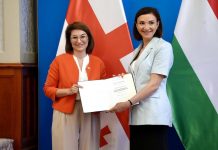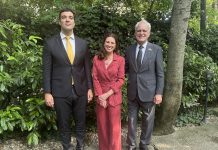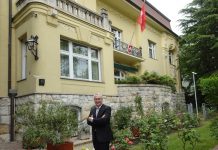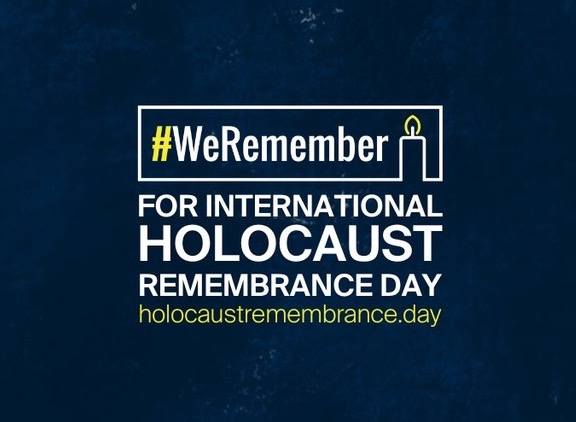Keeping the Memory of the Holocaust Alive.
“Never again!”
Edited by Anna Popper
In 2005, the United Nations General Assembly designated 27 January – the anniversary of the liberation of Auschwitz-Birkenau, the largest Nazi concentration and death camp in 1945 – as International Holocaust Remembrance Day to honour and remember the six million Jewish victims of the Holocaust and the millions of other victims of Nazi persecution.
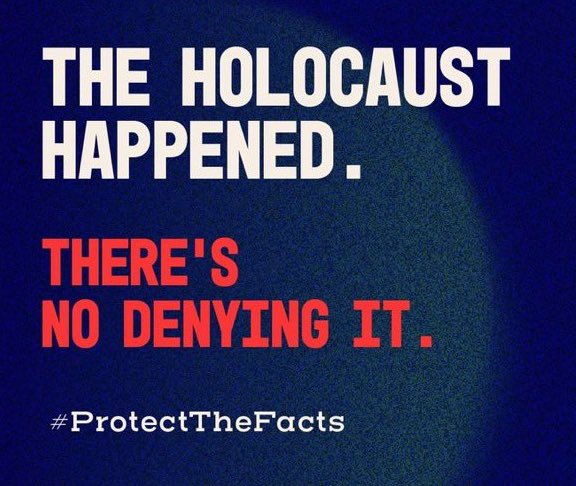
On the occasion of the Memorial Day and to reaffirm the timely and timeless lessons of the Holocaust, the Embassy of the Republic of Austria and the Austrian Cultural Forum, the Embassy of the Federal Republic of Germany and the Embassy of the State of Israel hosted a joint commemorative event and a screening of the Israeli documentary film “Numbered” at the Goldmark Hall, a historical venue, part of the Jewish Community’s Culture Centre, near the Great Synagogue in Budapest, on the 30th January 2024.
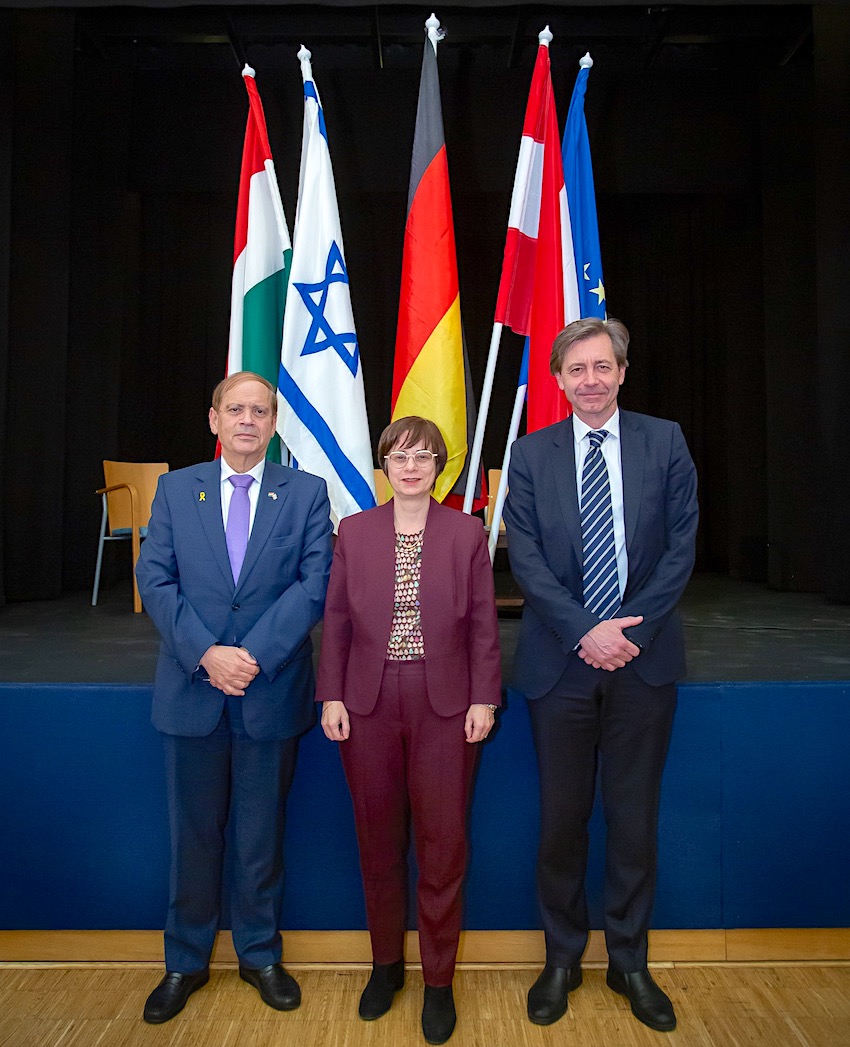
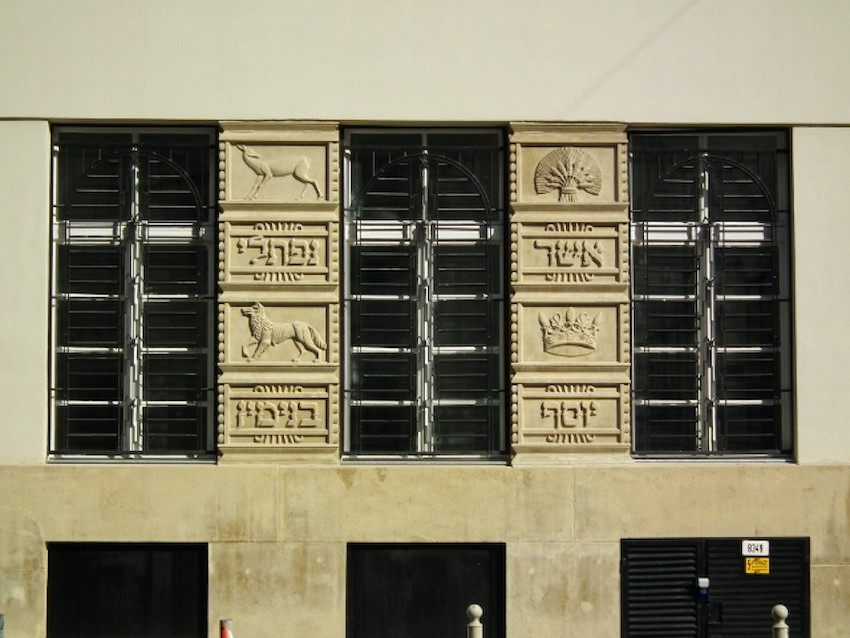
The evening of reflection and remembrance was attended by numerous Ambassadors, members of the diplomatic corps, Hungarian officials, representatives of the Hungarian Jewish community and its organisation, the Federation of Hungarian Jewish Communities (MAZSIHISZ).
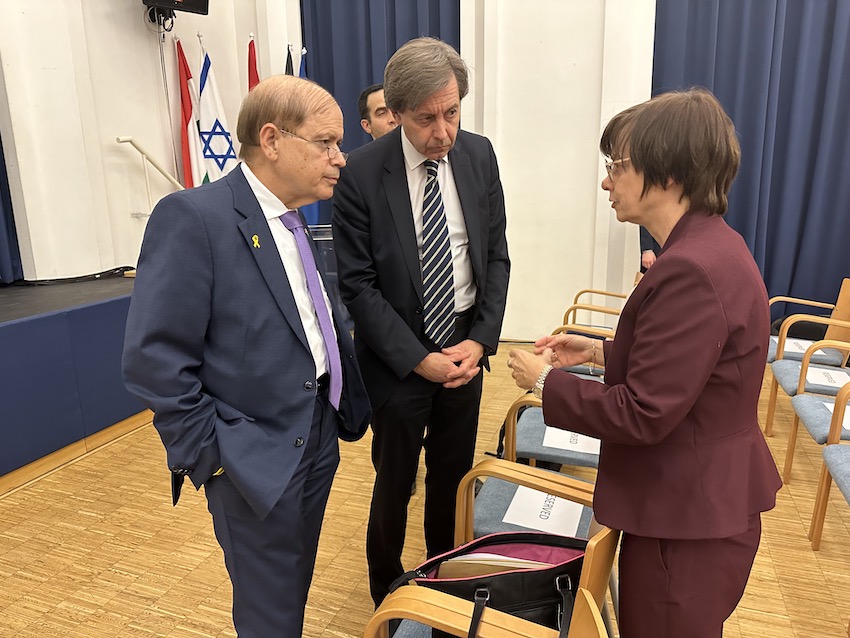
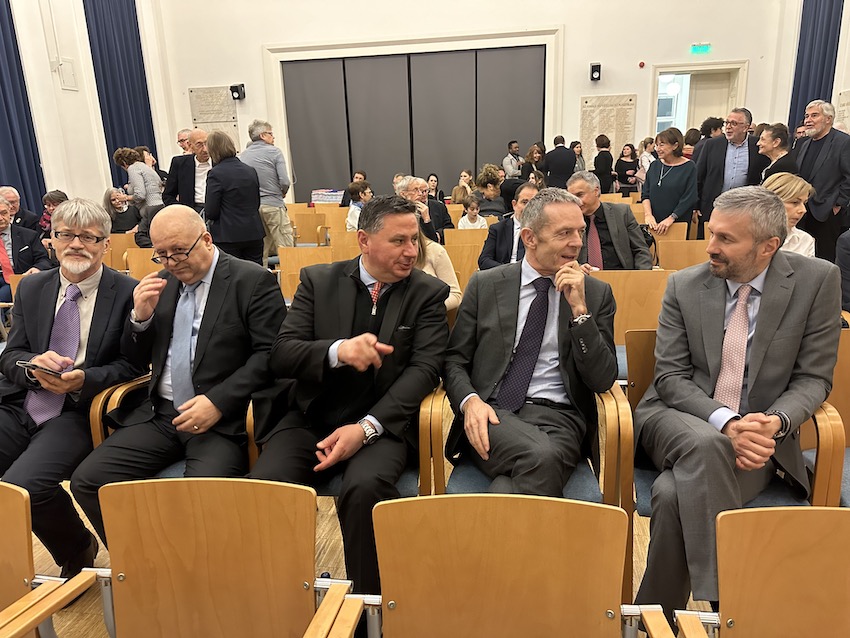
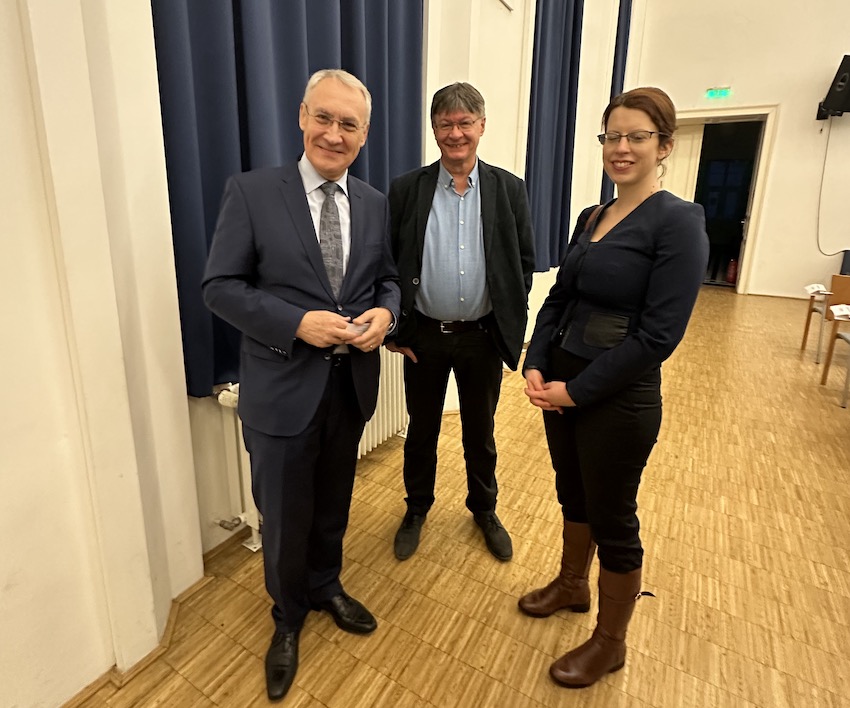
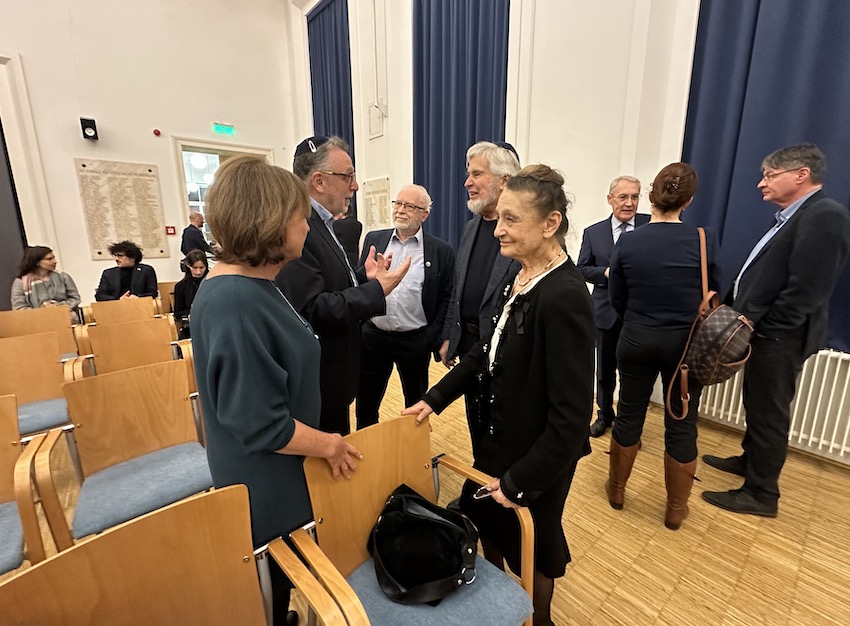
The event started with the speech of H.E. Mr. Alexander Grubmayr, Ambassador of Austria to Hungary, emphasizing that this joint commemorative event this year again was a sign of shared recognition and responsibility.
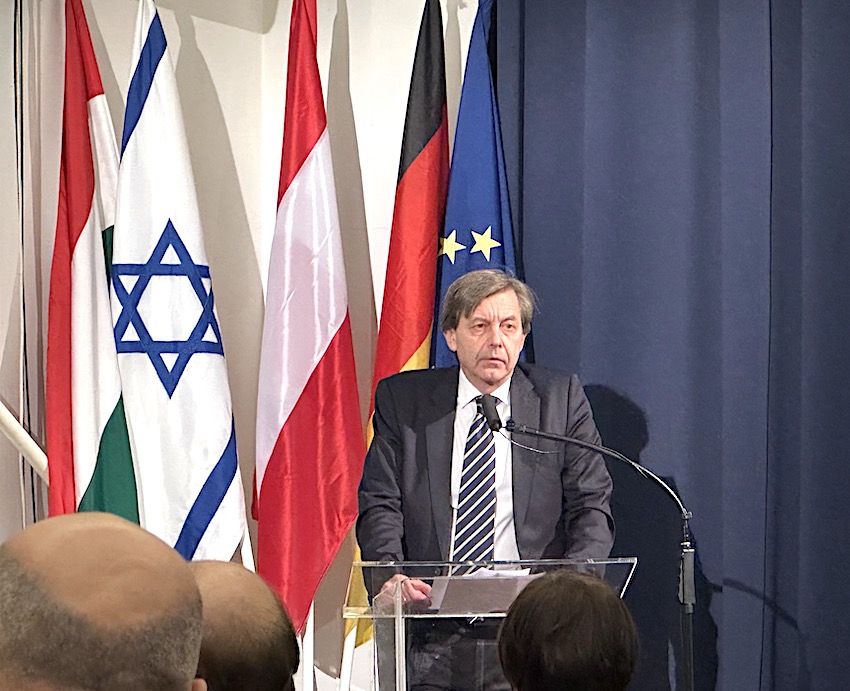
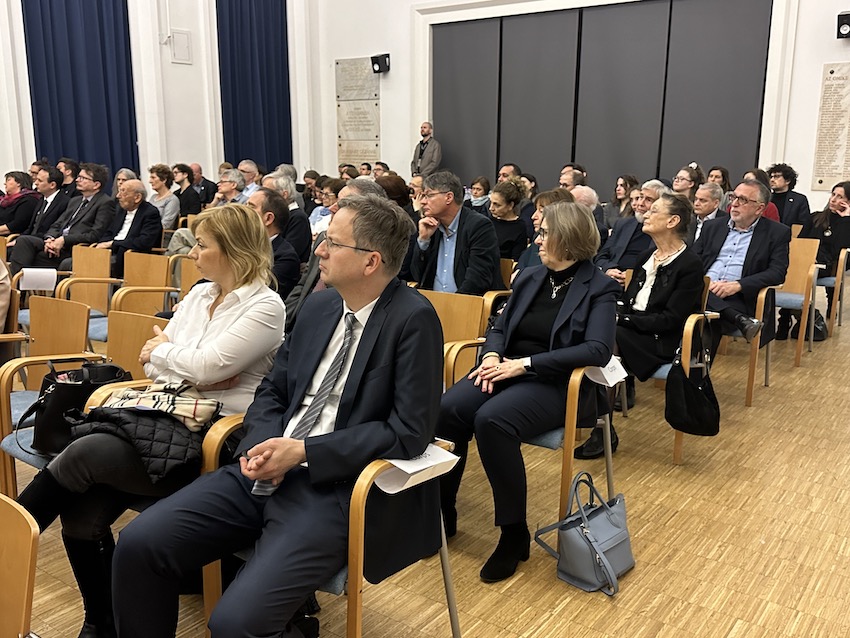
In her greeting remarks, H.E. Mrs. Julia Gross, Ambassador of Germany to Hungary noted that this year marks the 79th anniversary of the liberation of the death camp Auschwitz-Birkenau.
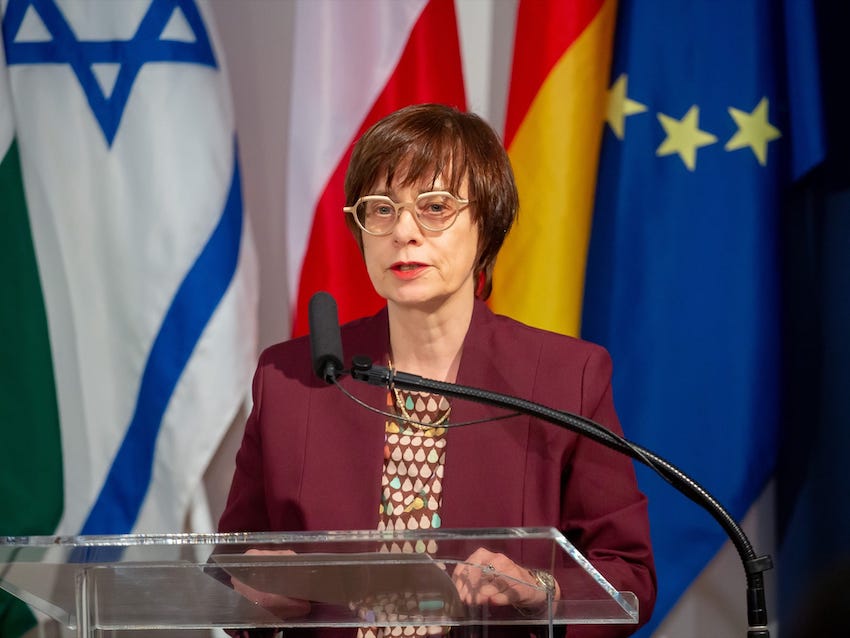
“Today we commemorate the 6 million Jewish men and women who fell victim to the murderous racial fanaticism of the National Socialists. Over 500,000 Hungarian Jews alone were murdered in extermination camps, on death marches or in mass shootings. We also remember the Sinti and Roma, the homosexuals, the disabled individuals and many others who were murdered by Germans and in the name of Germany. This dark chapter of German history is deeply embedded in our collective memory and will forever be inseparable from our country. Therefore, remembering the victims of National Socialism is a moral obligation for us. Germany fights nationally, internationally, in Europe and bilaterally against anti-Semitism and for Jewish life.”
“In the future there will be fewer survivors among us to give faces and stories to the numbers and bring the stories out of historical abstraction. Then it will be our task and responsibility to find ways to make memory tangible and strong enough to penetrate the armour of indifference. ‘Never again’ is now!” – Ambassador Gross added.
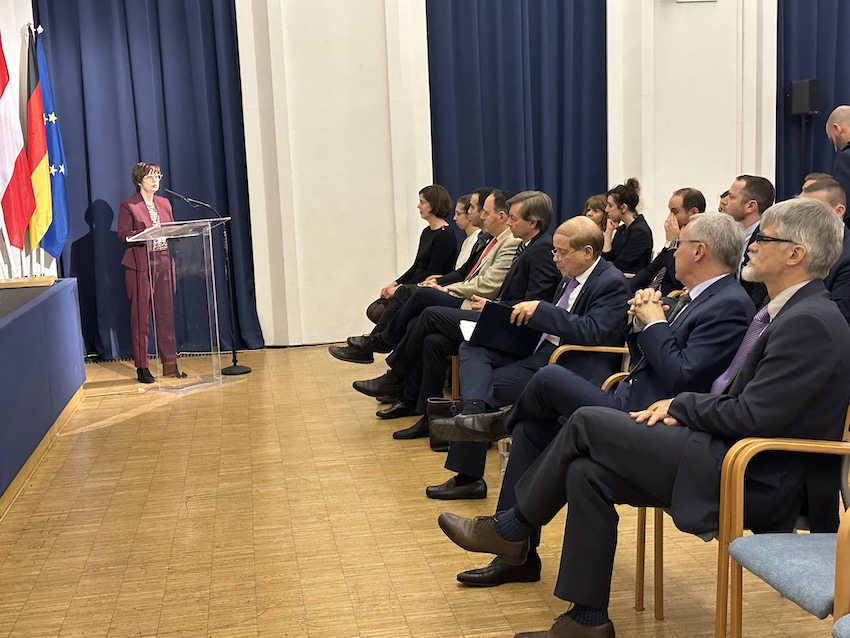
H.E. Mr. Yacov Hadas-Handelsmann, Ambassador of Israel to Hungary delivered his address:
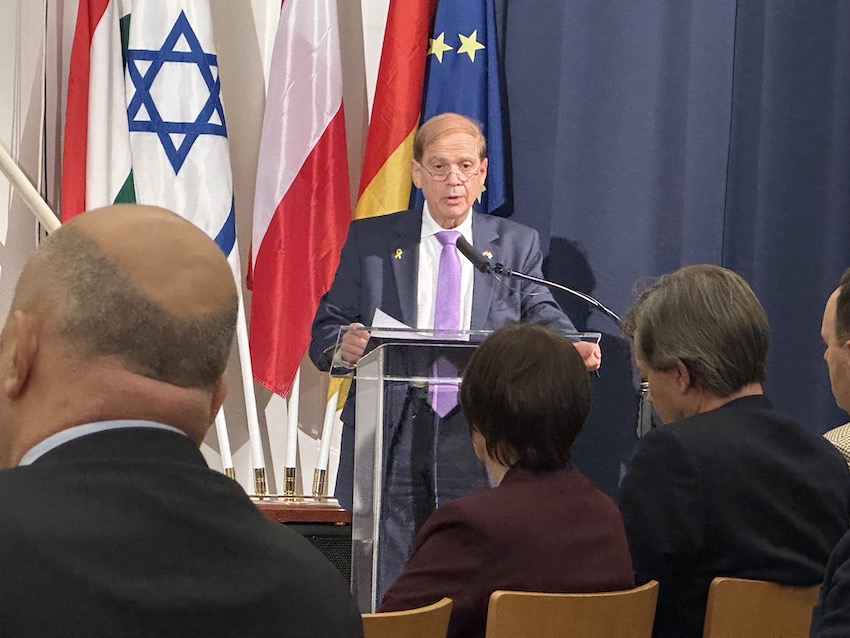
“When asked about numbers, people normally associate it with things like passwords, codes, ages, salaries, bank accounts, addresses, and more precisely, a number being a mere mathematical object used to count, measure and label. But this was not the case at Auschwitz-Birkenau during World War II. Numbers were used by Nazi Germany to degrade, demean and dehumanize Jews to the level of cattle and below. So, upon their arrival at Auschwitz, numbers were inscribed onto their forearms with blue ink etched into their flesh. Numbers were used to strip them of their names and family ties, and of their professions and possessions. The Nazis’ intention was to make Jews feel like they were no longer individuals.
We gather here today to pay tribute to the memory of the 6 million Jewish men, women and children murdered by Nazi Germany and their accomplices during the Holocaust. As German Ambassador Julia Gross mentioned last year, it is still unique in a way that representatives of the perpetrators and the victims gather to commemorate the Holocaust. But at the same time, the mere fact that we’re doing it shows that we’ve come a long way since the darkest days of human history.
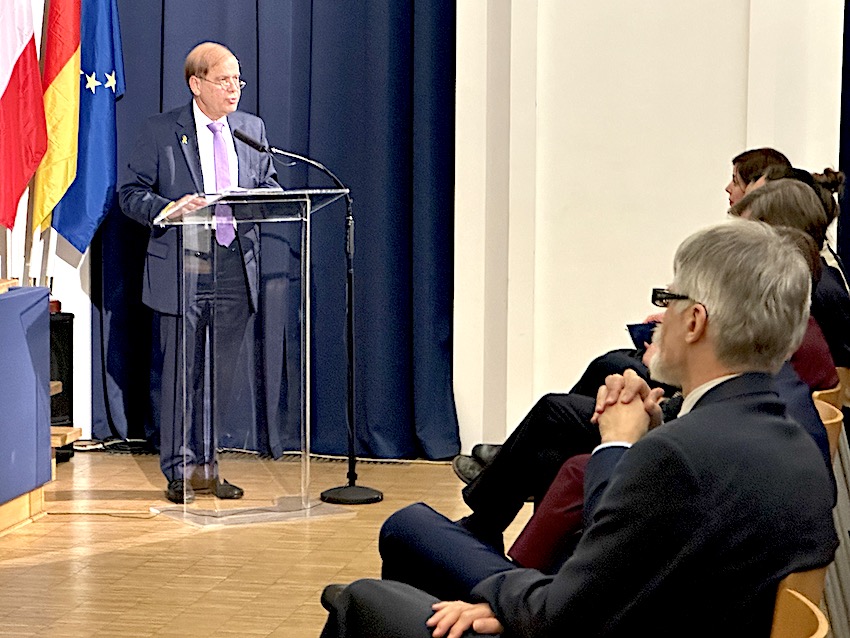
This International Holocaust Remembrance Day also coincides with 7th October 2023 – the day Hamas brutally attacked Israel. This Hamas attack on Israel was the deadliest against Jews in a single day since the Holocaust. We stand here today to emphasize the importance of freeing humanity from prejudice, hatred and discrimination that persists in our world today. We stand here now, more than ever, to urge everyone to combat anti-Semitism, as well as xenophobia, racism and all forms of hatred that still prevail in every corner of our world.
In the light of the October 7th attack and its aftermath in the world, words of sympathy and condolences are no longer enough. We need action against these demons that still threaten us. The way Hamas acted, and moreover the manuals given to Hamas terrorists, show us that they have turned into a Palestinian terrorist organization compatible with ISIS. Adding to it the fact that we know what ISIS did, and who it targeted, together with the nature of the demonstrations taking place in Western capitals, simply proves to us that not only was the lesson of the Holocaust not learnt, but also that the current threat might first be directed towards the Jews, but also against Western civilization as a whole. And all this using democracy as a tool to get rid of it, and impose their views forcibly upon us.
Let’s come back to the topic of numbers, as we will watch a film that shows many different testimonies and portraits of these survivors. For many years, people didn’t talk about the numbers on their arms and were ashamed to expose their arms for various reasons. Many survivors who could afford it, got rid of their tattoo as it reminded them of the trauma they had suffered. I quote a famous Israeli writer and Holocaust survivor, Yehil De-Nur (his pen name Ka-Tsetnik 135633 – ‘Ka-Tsetnik’, which stands for ‘concentration camper’ in German): 30 years since it was burnt into my flesh. I was very strict to make sure a foreign eye will not see it. 30 years and no short-sleeved shirts to be found in my closet, and during the long hot summer months in Israel, I suffer and sweat in my long-sleeved shirt. The most difficult part was being at the swimming pool, where I always had to carry a towel to cover my left arm. I always felt like all eyes were focusing on my arm and because I could never come to terms with this number, it was burnt not only into my flesh but my soul. And to this very day, I can’t remember my number unless I look at my arm.”
The strange thing was that the survivors were ashamed of their tattooed numbers. This was a sign that they were victims of the Holocaust. And those who should have been ashamed were the perpetrators and their descendants, not them.
I once met a retired marine officer who also survived Auschwitz and the death march as a teenager from Hungary. Years later, in the late 1960s, he was training together with German naval officers in Kiel, where his colleagues admired his knowledge of German language and inquired where he had learnt it. However, he always avoided talking about it until one day he decided to put an end to this mystery. While having lunch with the officers and answering another question, he stood up, rolled up his sleeve, and revealed the number tattooed on his forearm. There was a deafly silence. And many, many years later he could still remember it. From that moment on, until the end of his training period, none of the German soldiers dared to look into his eyes while talking to him. Then he finally understood that he was not the one who should have been ashamed, but rather they were the ones who should be, as they indeed were.
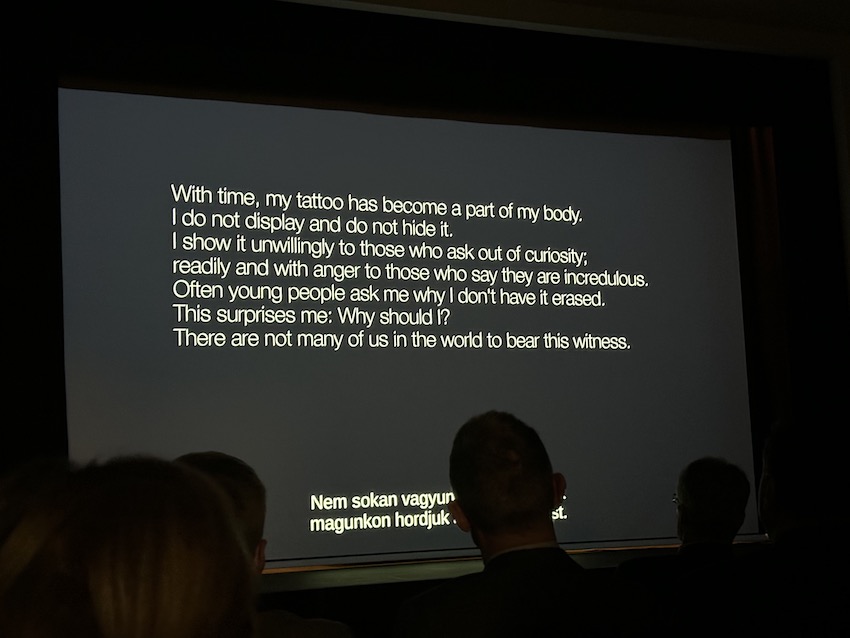
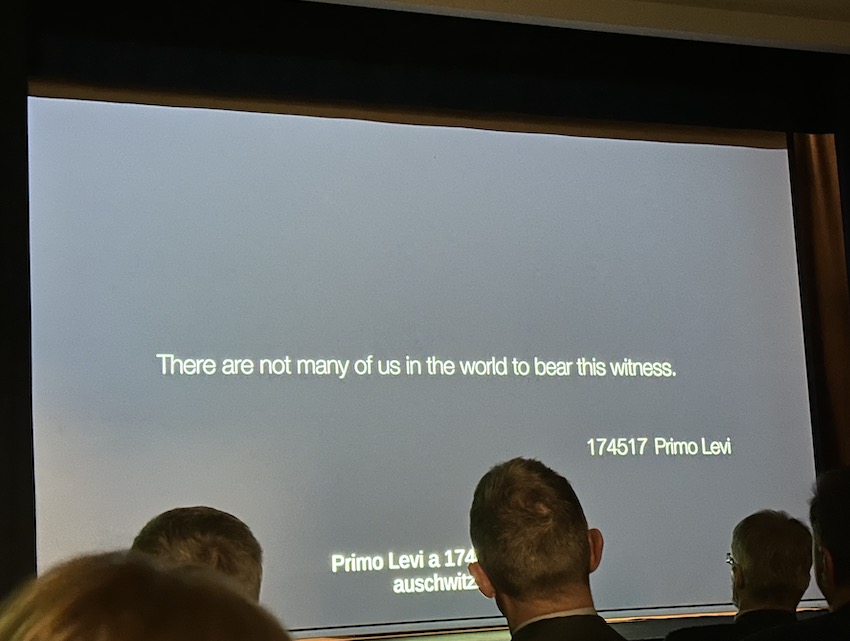
But now things have changed. Over the years, the survivors have come to terms that it was not them who needed to feel ashamed. The fact that people are growing old and new generations of children and grandchildren are being born into families, as well as the naturally growing curiosity and demand to ask questions about the past, were inevitable. The issue of the inscribed number tattoos was also raised, and some of their descendants responded by tattooing this number on their arms as well. This was seen as both a symbol and a token of appreciation for the suffering of their grandparents – in order to continue the memory of the Holocaust even after their ancestors have passed away. This has become something of a “trend”, so to speak, although tattooing is forbidden in Judaism. This phenomenon is now spreading after the horrific attack by Hamas on 7 October, and many youngsters want to commemorate either their murdered loved ones, or this terrible date by getting tattoos to make it a permanent warning sign or a commemoration symbol.
As Holocaust survivors leave this world and we see that the world has, at times, actually forgotten the darkest days of history – we can only respond by educating, speaking out and proactively making stronger commitments. For many of our young people, the events of the Holocaust seem to belong to a far away and distant past. Some of them have never even heard of it! This is another important reason why we need to educate younger generations about the Holocaust. After all, “Never Again” begins with education.
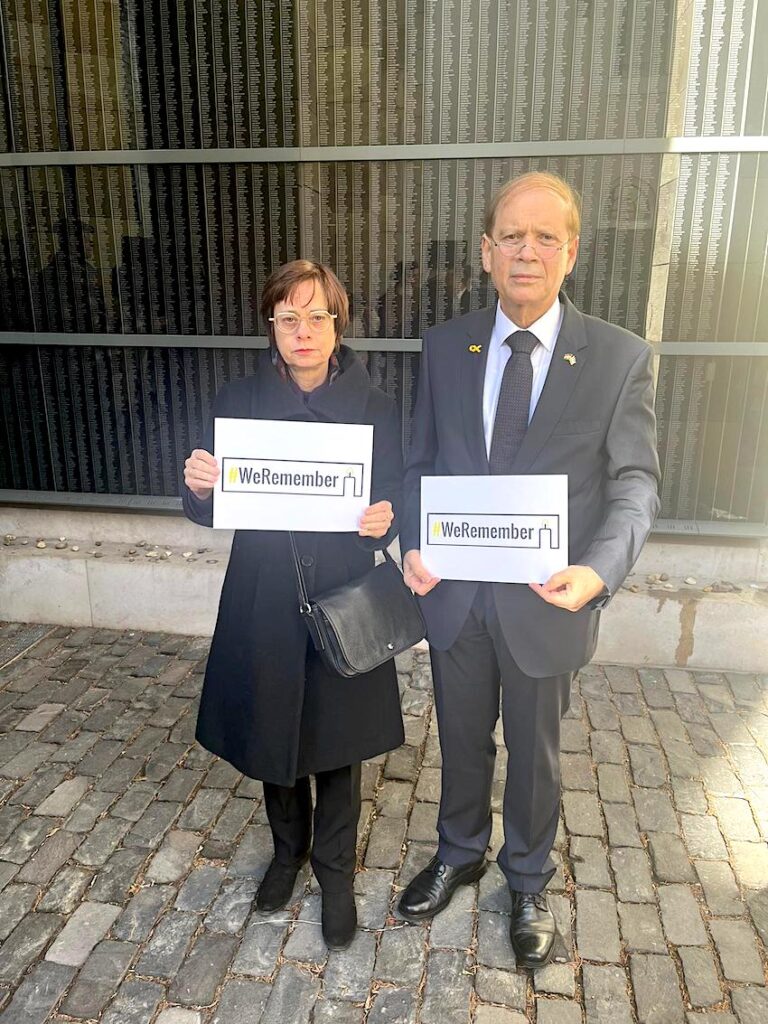
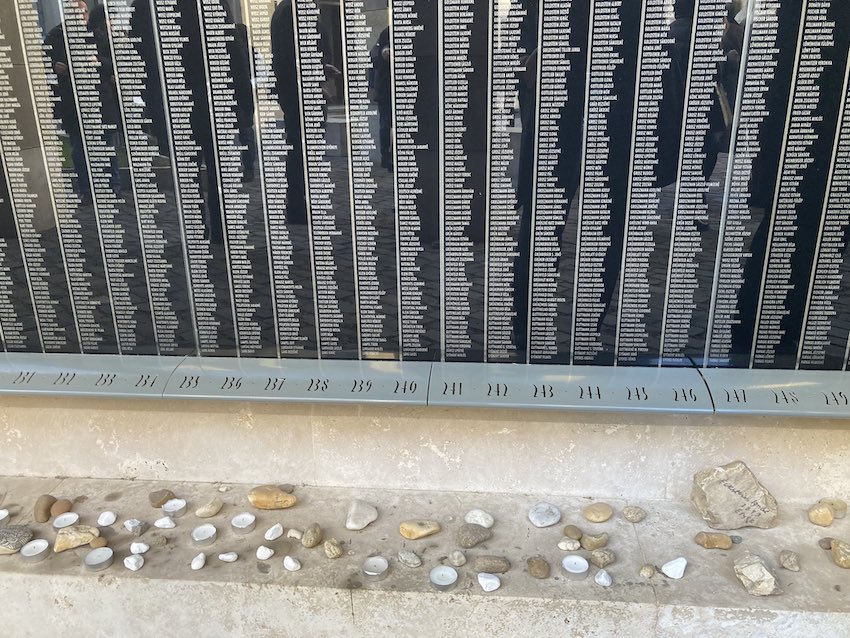
I would like to thank the Hungarian government for its efforts in preserving the memory of the Holocaust victims and introducing Holocaust education in schools, implementing the zero-tolerance policy against anti-Semitism, as well as the way it refers to the darkest period in World War II. At the end of the day, a symbol that was intended to dehumanize Jews has now become a symbol of commemoration, humanization and warning. This is more necessary today than ever. May the memory of our 6 million brothers and sisters be blessed forever.
Never Again! And Never Again is Now!”
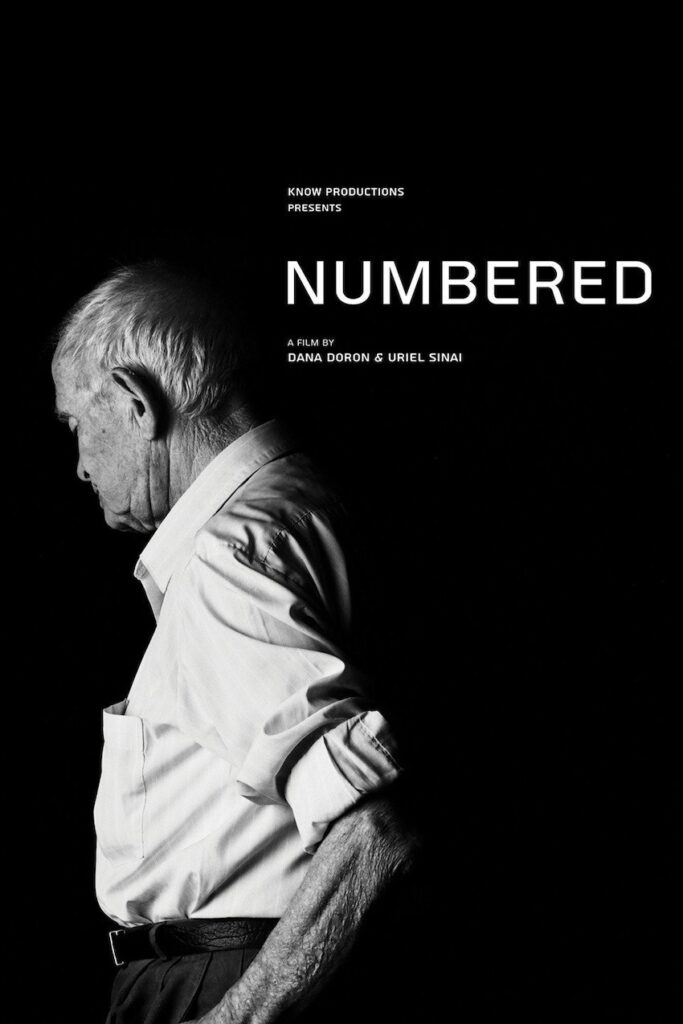
The commemoration continued with the screening of the Israeli documentary film “Numbered”, by Dana Doron and Uriel Sinai, released in 2012.
Numbered is a powerful, highly visual and emotional cinematic journey, guided by testimonies and portraits of more than 30 Auschwitz survivors and their complex relationships with the serial numbers tattooed on their arms. The film documents the dark time and setting in which these tattoos were assigned, as well as the meaning they took on in the years following the war. Each of the interviewed survivors has their own narratives and perspective, offering rich insights into society’s changing attitudes toward the indelible imprints of their past experiences. Their testimonies contribute to vividly portray the intersection of past and contemporary times, and how individual identities are shaped by the names and numbers associated with their experiences.
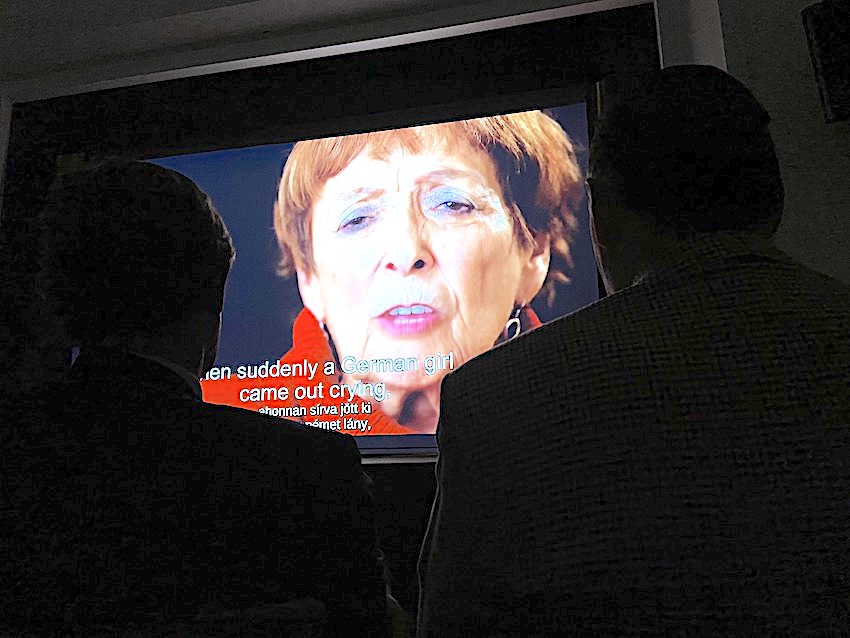
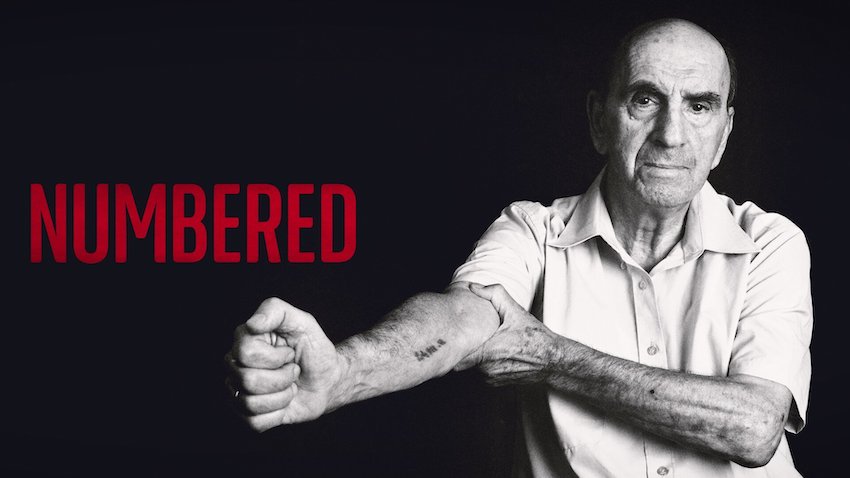
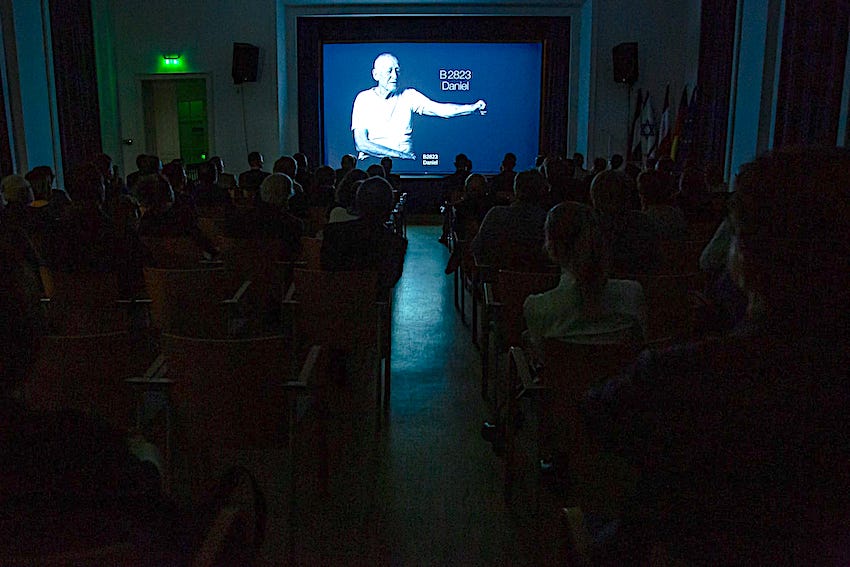
The event concluded with a panel discussion on “New approaches and practical methods of Holocaust memory preservation”, led by Marcell Kenesei, Director of the Jewish Community Centre Budapest (JCC/Bálint Ház), with the participation of Anikó Felix, Executive Director, Haver Foundation, Maria Lieberman, Director, Centropa Hungary and Centropa Jewish Network, Andrea Szőnyi, Director, Zachor Foundation for Social Remembrance and Sára Pálhegyi, The March of the Living Organisation.
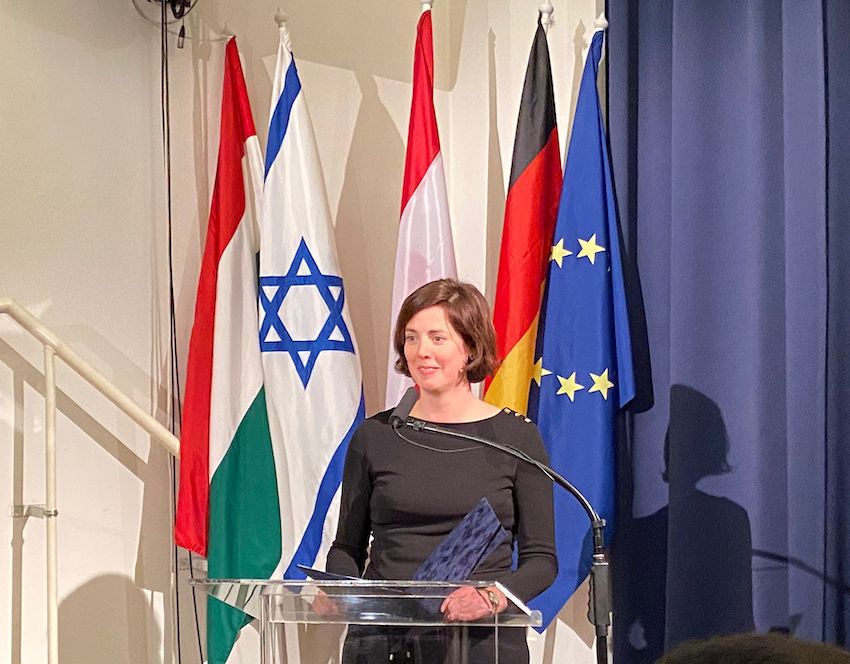
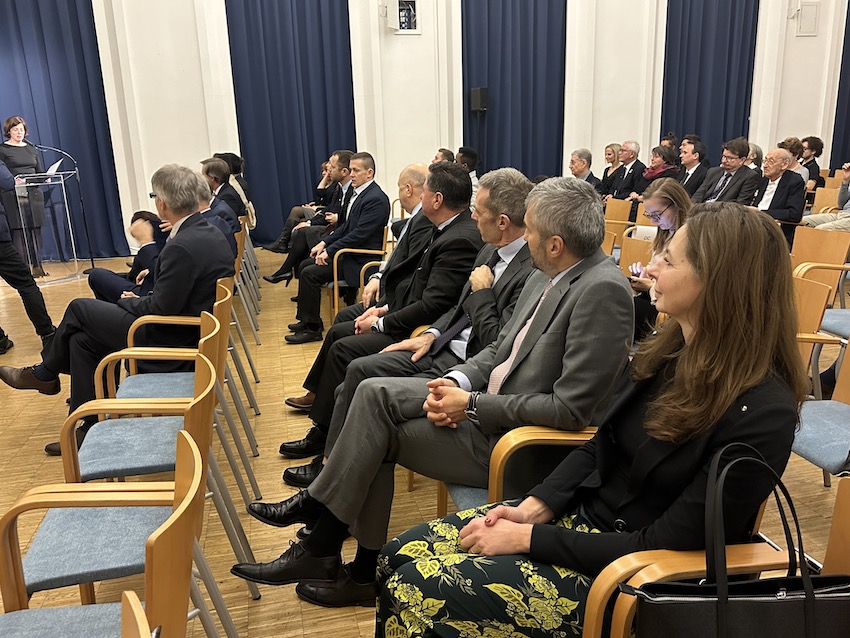
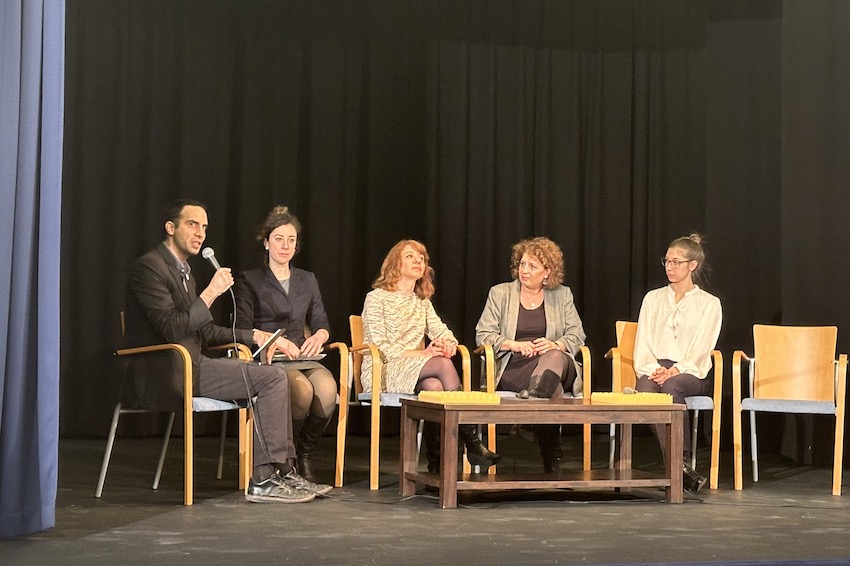

Sources: Embassy of Israel in Budapest, Embassy of Germany in Budapest
Photos by Mayer András – German Embassy, and DPA

